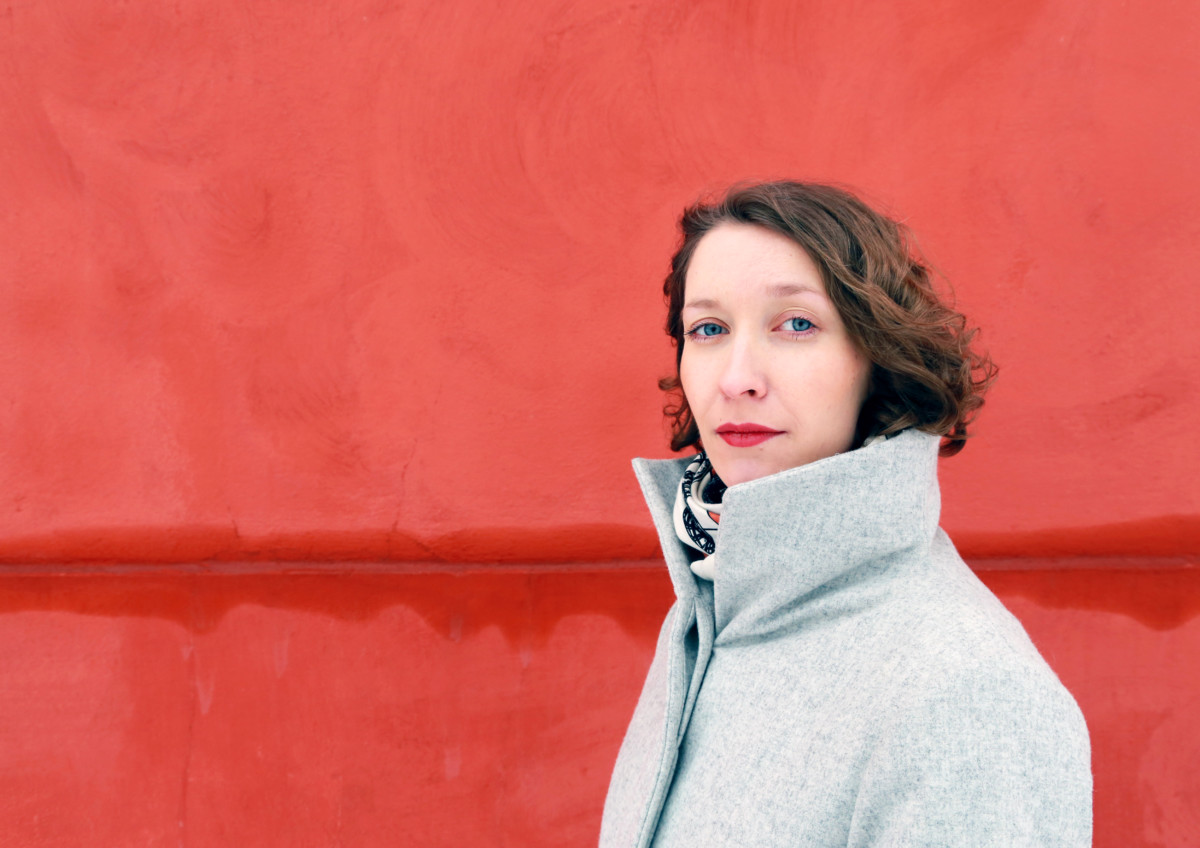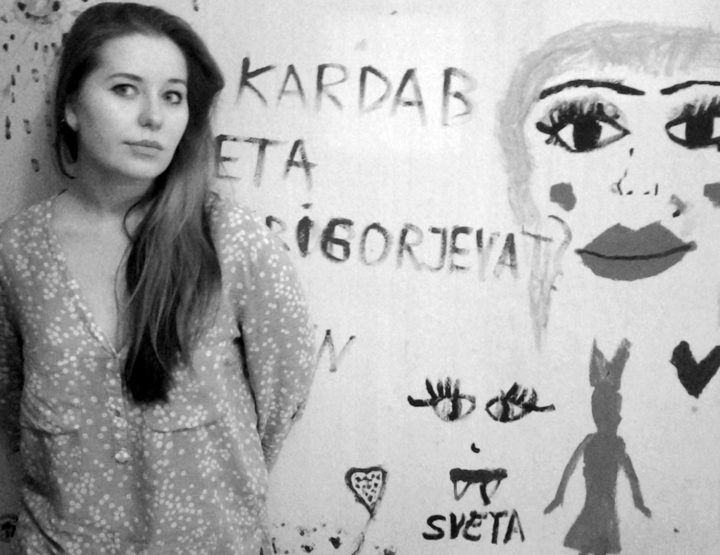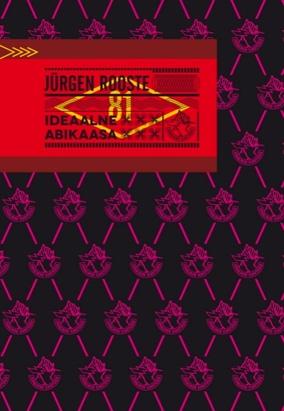Eda Ahi is a poet whose sharp words, impeccable sense of rhythm, and rich imagery has captivated readers since her very first collection. Masquerade (2012) can be counted as one of the strongest Estonian literary debuts of the last decade: the young author’s poems were at times shockingly mature, and her distinctive literary voice was already clear. Rhyming adds an ambrosial quality to Ahi’s poems – a technique to which she has remained loyal to this day. Masquerade also received the Betti Alver Debut Award. Since then, Ahi has released five poetry collections altogether, each of which has received acclaim. Her latest work, War and Perturbation (2018), ripened over the course of working as an Estonian foreign servant in war-torn Ukraine for one year and was recently nominated for the 2018 Cultural Endowment of Estonia’s Award for Literature.
Let’s start from the beginning. Your first poems were published when you were 18. How did you start writing poetry? Have you always known that literature is your calling or your “high road”, so to say?
I started writing when I was a kid. Like most of us, that stage of my life was very da Vinci-like. I had a very broad field of work and play that stretched from engineering and agronomy to all kinds of fine arts. I enjoyed drawing the most, but wasn’t a stranger to musical improvisation or writing, either. That kept up at least until the end of the first grade. Later, my life turned somewhat gloomier and more monotonous. I came back to writing poetry by the time I was a blossoming teenager. At the age of 13 or 14, I discovered that I liked to write.
I’ve always held a very liberal attitude towards utilizing skills and talents and believing one can successfully learn and do all kinds of things in life while still remaining happy and even emotionally healthy, to a relative degree. Even so, practical experience has shown that although you really can learn all kinds of different things and even be engrossed by them for a while, some fields still suit better than others.
When I was younger, “follow your calling” sounded kind of distant and unrealistic to me; it was overly romantic. But now, a calling seems to be something extremely simple and even practical. An inner faculty to do what suits you, which is to say, something that draws you to it and you’re good at, more or less.
You did continue writing. And to this day, you write rhyming poems almost without exception. How did that choice come about? How much of it was chance, and how much was intention?
Writing in rhyme was a complete coincidence. I tried to write more free-verse poetry at some point, but it was an incredible flop. I suppose you have to be a more talented poet and editor of your own poems to write well in free verse – and no doubt also more whole as a person to be able to find your clear path in a state of apparent disorder. By now, I can probably say that I’ve made peace with myself, and in doing so have made peace with the conscious choice to write based on gut feeling: just as cognitively as suits me best and seems the most logical. At the moment, this means writing in a more definite rhythmical structure and in rhyme, though I suppose my rhyming is lazier than before. I’m not saying I’ll never give free verse another try, but the way I see it, it could come organically. Not like: mmm, now, I’m going to force myself to write a different way. I suppose that as a process, playfulness and adventure is important to me when writing poetry: you should always be excited about what will turn out. The idea of being compelled to try to write free verse is intriguing. When writing, I like to see where language takes me all on its own, and in that sense, rhyme might not be restricting or confining in the very least, but rather (at least based on my limited experience) even liberating from free verse on occasion.
Is there a magician within you, and how much so? Are you a seeker and reader of signs?
I reckon I haven’t been given the magician’s gene at all. As for signs, I’m most interested in connections and the elation that comes with you discover them. It’s always fantastic when something reminds you of the wholeness of the world and of existence; of the greater context of the age you live in. Traveling is a relatively foolproof way to experience this, for instance.
You really have traveled a lot, and you’ve also written about it. Recently, you spent a year working in Ukraine, which also led to your latest poetry collection War and Perturbation. Does this latest collection differ from your earlier works, and how significantly?
Perhaps the experience I describe in the collection is more clearly delineated than before: temporally, spatially, and in terms of topics. Most of the poems were indeed written over the period of a single year in one specific country; others were written while thinking about the year, either preparing for it or later recapitulating what I experienced. I wouldn’t say it’s entirely true, but I suspect the book turned out to be even more direct and personal than my earlier ones: the “perturbation” in the title is also a sarcastic reference to my own anxiety.
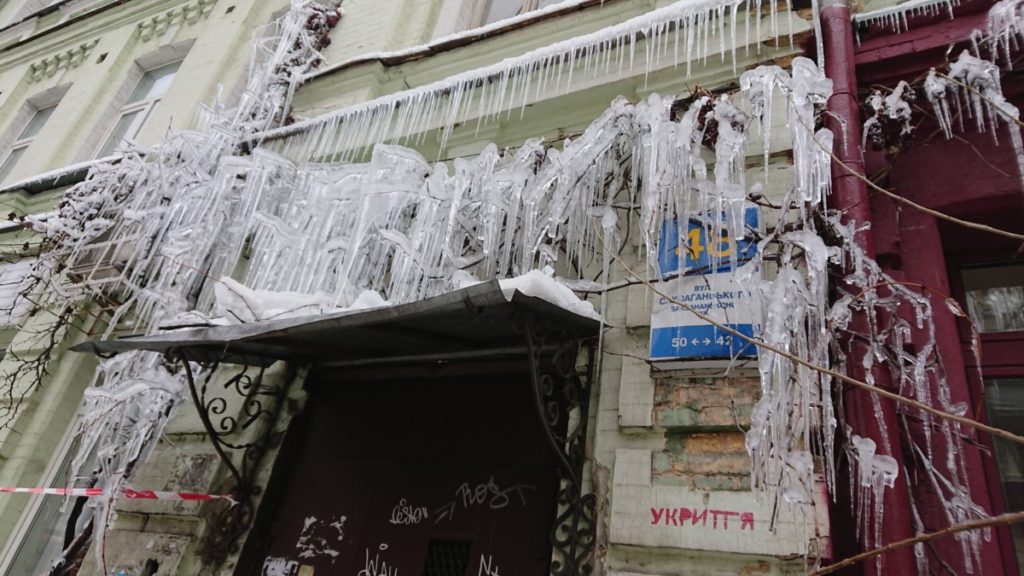
What’s the broader state of art and literature in Ukraine right now?
I have to admit I was actually very surprised to see how vigorously the art scene can flourish in spite of war and destruction: or, rather, how it can seem to sprout straight up through the rubble. I guess deep down, I’d foolishly supposed that if not the artists, then at least the audience wouldn’t have the interest or time to turn towards art in such a situation. But there on the ground, it turned out to be the exact opposite. I was amazed to see that authors enjoyed a status akin to rock stars: and not just living writers, by the way, but even long-dead ones of the 19th century.
Lately, I had the honor and pleasure to interview the Ukrainian poet Liubov Yakymchuk, who confirmed my impression that literary events are even more popular in the current tense era than they were before. People trust writers and literature and seek answers in their works that politicians often aren’t able to provide. She said that even in small places around Ukraine’s periphery, hundreds of active and genuinely interested people will gather at poetry evenings.
War is, of course, a terribly dear price to pay for people to start perceiving the value and might of literature.
True. I feel like in modern-day Estonia, we generally don’t perceive literature, and especially poetry, as a practical or crucial phenomenon. “Practical” isn’t the first word that comes to mind when describing it, at least, nor does it have to be. It appears to be different in Ukraine and reminds you what kind of weight and importance literature and reading can have. So, even when you live in relatively safe places, it’s worth keeping a couple of books within reach, just in case. All in all, it’s positive that we have the opportunity to treat literature as a luxury that we can all afford ourselves, not a staple good.
You mentioned earlier that you also have a lot of bright memories of Ukraine that didn’t make it into the book.
Speaking in general, maybe the greatest positive tone I encountered in that country and its people was a burgeoning life force in the face of chaos and resignation; an urge to make art and the determined desire to build something new. The sometimes youthful, bold, and sincere belief that everything is possible and still lies ahead. Ukraine’s diversity, its fascinating and complex history, its culture and colorfulness. The fast pace and open-minded metropolitanism of Kiev, as well as the opportunity to travel throughout Ukraine and the nearby vicinity. Of course, the whole journey probably would’ve had a much paler hue if I hadn’t had wonderful travel companions.
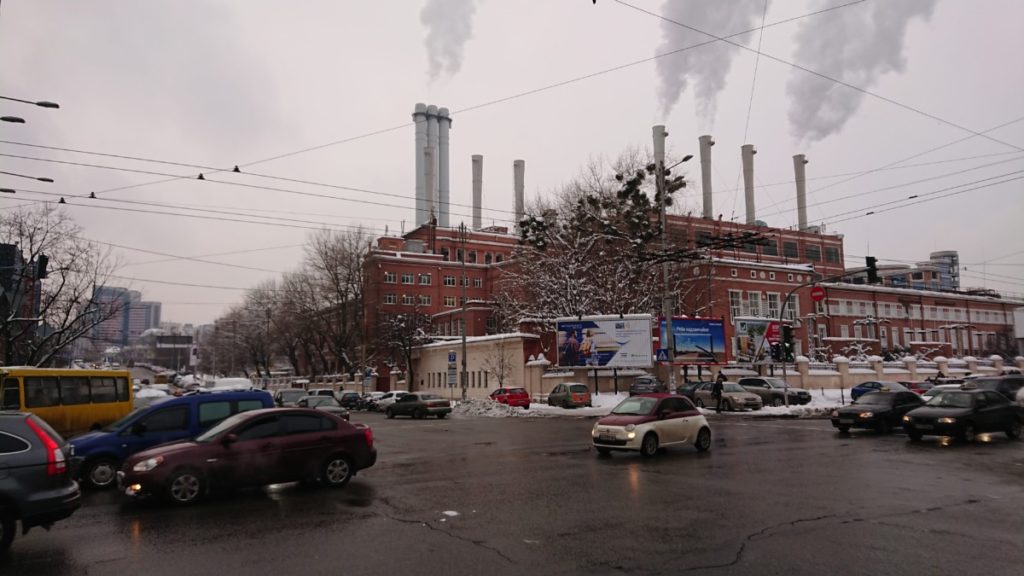
You’ve also lived in Italy, where you renovated a house, among other things. How did life lead you there?
I ended up in Italy as part of my studies. Specifically, after finishing secondary school, I made the adventurous and, even to me, unexpected decision to go study Romance culture, and specifically Italian. To this day, I believe it’s one of the best decisions I’ve made in my adult life.
I spent one academic year as an Erasmus student in Florence, then headed to Sicily for the summer months, where I volunteered. Thus, I was able to experience two different Italies: the country people usually associate with a ton of simplifying stereotypes is actually immensely diverse. The realization is certainly cliché, but directly experiencing how stereotypes don’t hold true is refreshing from time to time. From a growth standpoint, this was extremely important for someone living in a country they knew only from a university study program and other peoples’ stories. Shenanigans and escapades were all a part of it, of course, as was self-discovery.
After spending long periods away, have you started to see life in Estonia in a new light, too?
I’m very grateful for both years of my life spent abroad: life was exciting in both Italy and Ukraine. Still, I like living in Estonia, even though I’m occasionally brought down by the divisions, cruelty, and lack of consideration that erode society. In spite of sometimes disappointing missteps, however, it does seem like we’re gradually moving in the right direction. The year in Ukraine reminded me that we tend to take a lot of blessings for granted. Things have worked out pretty well for Estonians, although I suppose we’ve had to work a good deal to make them work out, too. I remember that even when I was returning from Italy with a fresh gaze, life in Estonia seemed rather positive: dynamic and open to the future. However, we Estonians could certainly learn a thing or two from Italians, as well as Ukrainians. For the first time in a long while, I haven’t felt a need to move somewhere for a longer period, which no doubt has to do with the current stage of my life. I’d still like to travel, of course: frequently and far away.
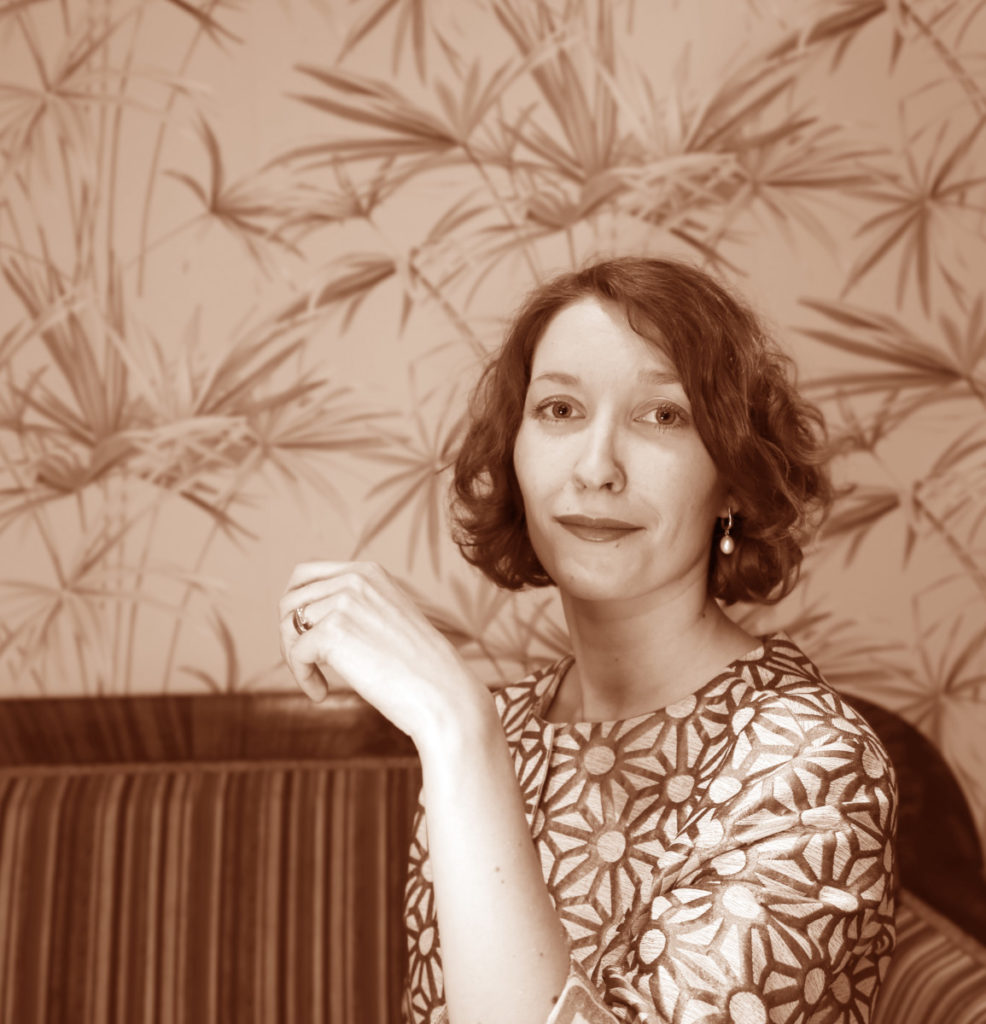
You’re increasingly involved in translating, too. And one could say you have several native languages. What fascinates you most about translating?
I grew up in a multilingual environment: we speak Estonian, Russian, and sign language in my family. I only speak the latter on a very basic level, unfortunately, because my parents spoke to me mainly in Estonian and Russian and in sign language among themselves. No doubt I got my interest in languages and the translating bug it brings with it when I was just a kid, unawares. English was added to the mix in primary school and I later studied French and Spanish to a lesser degree, also. I focused on Italian culture in university and the language came as a bonus. I did pick up a teensy bit of Ukrainian while living there. All in all, I feel more or less fluent in English, Russian, and Italian; the others still need practice.
Right now, my main translating dream is simply translating itself: finding opportunities to translate high-quality literature (meaning prose and poetry) and writing that is familiar and important to me as well as that which I still don’t know; which surprises me.
So, Eda Ahi is a poet and a translator who, at the moment, also works as an official at the Estonian Ministry of Foreign Affairs. Do you dream of someday dedicating yourself entirely to literature, regardless? Or do those worlds balance one another other out?
Yes and no. I’ve generally held an optimistic attitude towards uniting my employment activities with literature, believing that diversity is enriching. However, this type of joining certainly shouldn’t be an obligation, but simply a choice. Hopefully, the opinion that struggle is a direct path to high literary quality isn’t all that widespread anymore. If you know how to maintain a true balance between those worlds and wish to do so, then that balance can definitely turn out to be highly productive. On the other hand, if at some point you’re no longer able to or don’t want to anymore, then the situation can turn pretty dire.
My day job has been quite interesting and usually accompanied by a very positive and supportive work environment, but it’s also required a relatively large amount of time and dedication, even at the expense of literature and my private life. However, I doubt I’d have been able to write my latest poetry collection without my day job. I’d be lying, though, if I claimed that everything has gone swimmingly: from time to time, I can’t help but notice that evenings spent on literature are few and far between because of work.
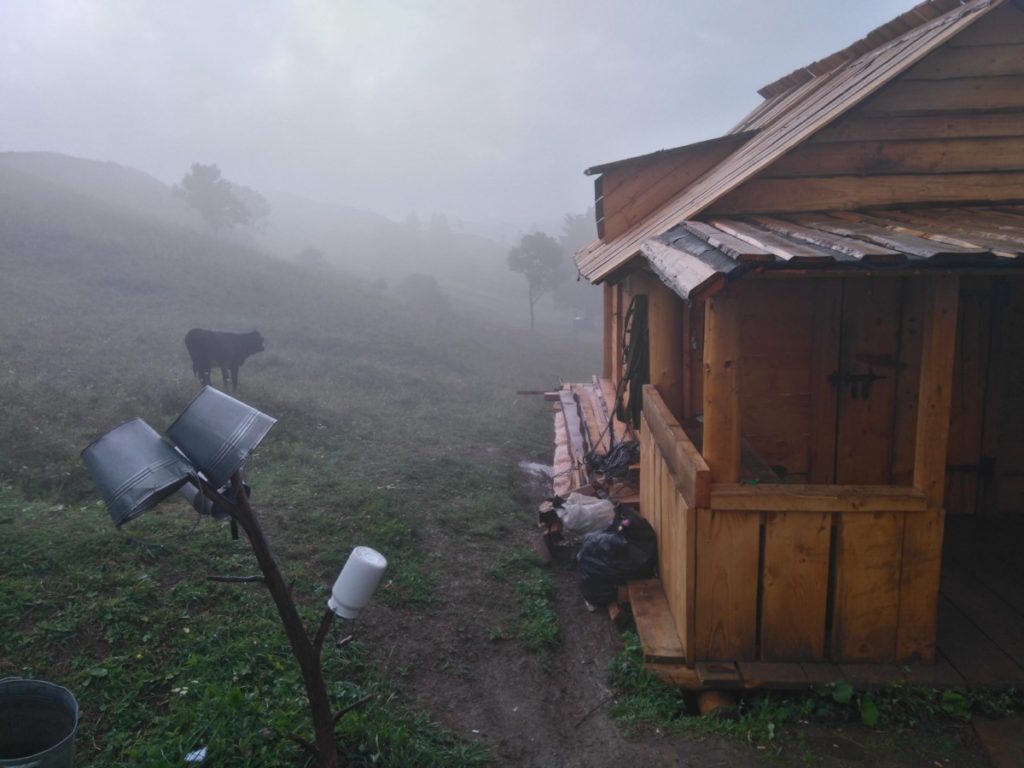
What do you read, mostly? And what else do you enjoy doing in your free time?
I read mostly Estonian-language literature with another language or two mixed in. On my nightstand right now, for example, are short stories by the French writer Annie Saumont as well as Veronika Kivisilla’s and Kristjan Haljak’s new books. Traveling also opens up fresh horizons for a lazybones like me, who otherwise doesn’t search for ever-newer reading landscapes all that actively. I try to read fiction and nonfiction connected to my travel destinations before, during, and after trips, and often pack a few of the books with me. I don’t really do anything all that original in my free time: in addition to mind-energizing activities like literature, visual arts, theater, cinema, and music, I sometimes seek bodily stimulation. I go running, for example.
What was the last song you couldn’t get out of your head?
Lately, I’ve been haunted by David Bowie’s “Kooks”.
If it’s okay with you, I’d like to end with something rather personal, inspired by the references that can be intuited from several of your poems. What is your relationship to religion? In what power do you believe?
I have to admit I’m a little defiant when it comes to religious institutions. That being said, I do naïvely believe in this and that. The first words that come to mind are that I believe it’s worth fighting for what you care for and what you believe is important. At the same time, that doesn’t always apply: it might not pay to fight for something unnatural. For instance, I believe it’s unacceptable and unnatural to be human and to revile or vilify others because of their skin color, gender, nationality, or sexual orientation. It’s unfortunate in the first place that even today, I still need to point out something so natural. I’m uncompromising in that matter. So, I suppose above all, I believe in the power of humanity.
Lately, there’s been a poem by Doris Kareva spinning around my head which I think best expresses this belief:
You are no better than anyone.
You are no worse than anyone.
You have been given the world.
Look what there is to see.
Nurture what is around you,
nurture who is beside you.
All creatures in their own way
are funny.
All are fragile.[1]
If that isn’t
clearheaded reasoning, then what is?
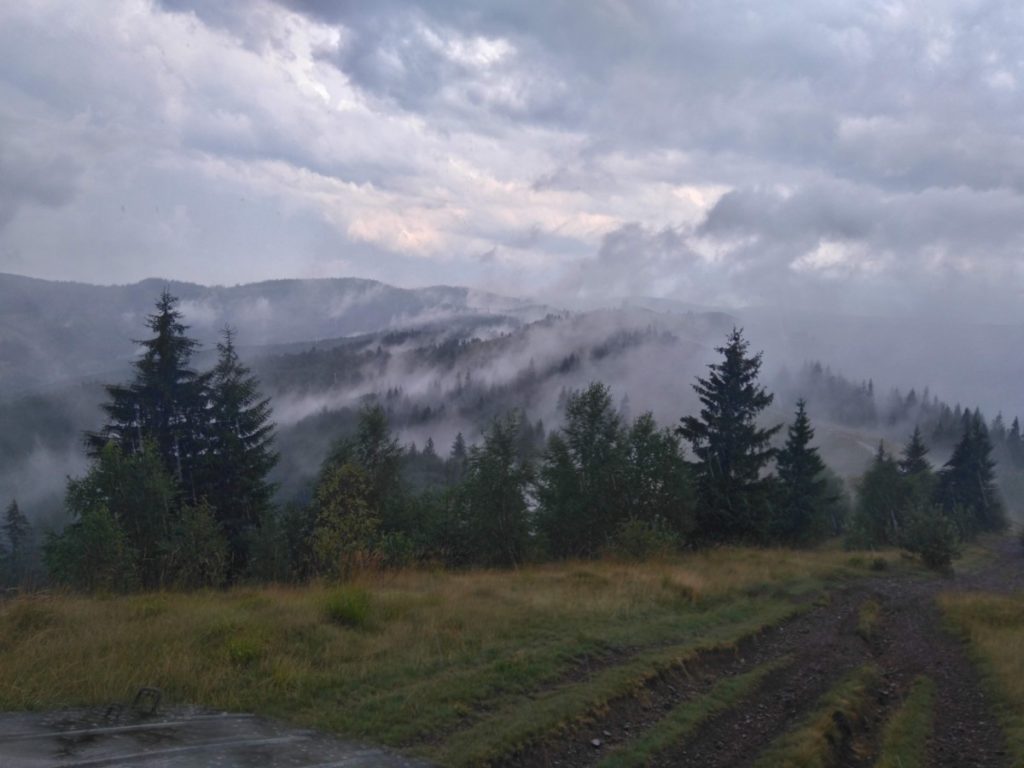
[1] Kareva, Doris. Days of Grace. Translated by Miriam McIlfatrick-Ksenofontov. Bloodaxe Books, 2018. p. 40

